So is it possible to have an unhealthy obsession with healthy eating?
Sounds a bit ridiculous right?
We live in a toxic world. We’re bombarded with toxins every day from our environment and in the processed food we eat. This is why so many of us are sick. Simply put, food provides is the fuel for every cell in our bodies and the best fuel comes from clean organic whole food sources.
So yes, I think healthy eating is extremely important, heck that’s a huge part of how I beat cancer.
But it is possible to become so obsessive over your health to a degree that you actually become unhealthy.
There’s a relatively new term for this sort of thing. It’s called Orthorexia Nervosa, coined by Steven Bratman MD, author of a book called Health Food Junkies.
People with this disorder take healthy eating to an extreme. They religiously obsess about every minute detail pertaining to the quality of the food they eat to ensure that it is “pure”.
Here’s an example of the progression. They may start by becoming a vegetarian, then a vegan, then a raw vegan. Then a fruitarian only eating fruit. Then they stop eating fruit because it has too much sugar. Then they stop eating nuts because they have too much fat. Then they obsess about what time of day is best to eat and what size portions are ideal. Sometimes they adopt the idea that different foods should never be eaten together, which can leads to a practice called mono-eating: only eating one type of food per meal, like having only sprouts for lunch. Some get obsessed with cleansing and detoxifying the body and severely restrict their food consumption by fasting but they take it too far end up malnourished and literally starving themselves to the point where the body begins to break down healthy tissue to survive… All for the sake of health.
All those practices mentioned above can be beneficial (except for starvation of course), but there is such a thing as “too much of a good thing”.
Water is essential for life, but too much water will kill you, remember that college hazing incident?
Oxygen is essential to life. But breathing 100% pure oxygen for extended periods of time will damage your lungs and central nervous system.
Here’s my position on the raw vegan diet:
The raw vegan diet is a very powerful detoxification, weight loss and healing diet in the short term.
It can be incredibly beneficial and I often encourage people to do it for a season.
But many people cannot thrive on a 100% raw vegan diet in the long term.
Like me.
In early 2004 after my surgery I converted to the raw vegan diet after reading God’s Way to Ultimate Health by George Malkmus. That book was an answer to prayer as it gave me the courage to take control of my health and started me on my healing journey, which is why I recommend it.
“God’s Way” advocates adopting a vegan diet that is 80% raw food 20% cooked food to overcome disease. It worked for the author and has also worked for countless others. So naturally I believed that it would work for me.
In the health world some consider raw veganism to be the pinnacle of health. It takes an incredible amount of discipline and self-control… kinda of like being a ninja. And who doesn’t want to be a ninja? Raw veganism basically has three pillars: processed food is bad, cooked food is bad, animal food is bad, therefore only raw fruits, vegetables, seeds, and nuts are health promoting foods. Everything else promotes disease.
Based on this belief system and the fact that I had cancer, I was kind of afraid to eat anything else.
This is what I call “food fear” and looking back, I was borderline Orthorexic.
Believing something to be true and wanting it to be true, does not necessarily make it true.
On January 15th 2004, two weeks after my colon surgery and a week into the raw vegan diet I weighed 135 lbs.
Did I mention I’m 6’2″?
I looked like Jack from The Nightmare Before Christmas, except a little better looking, and with hair.
Even though I felt good on the raw vegan diet, and I believe it was very beneficial, it was not sustainable in the long term. I could not gain or maintain a healthy weight.
So after 90 days as a raw vegan my naturopath John Smothers added some cooked foods and clean meats back to my diet. He examined my blood work, and had laboratory testing done on my urine, saliva, stool, and hair. After examining all my biomarkers and complete metabolic profile he said, “You need more animal protein”.
Even though in the beginning I was convinced that raw veganism was the way to restore my health, I was willing to try anything. I was determined to live. Living was way more important than being a raw vegan ninja.
He added a few servings per week of clean, organic, wild and free-range meats: lamb, chicken, wild-caught alaskan salmon, etc.
From there 70-80% of my diet was still raw and I continued to drink 64 oz of vegetable juice everyday, but his diet modification helped me regain weight and provided my body with additional ammunition to heal itself of cancer.
Jordan Rubin’s books Patient Heal Thyself and The Maker’s Diet were extremely helpful during that time.
Balance is important.
If you are sick, you need to make nutrition a priority to regain your health. If you have cancer, you need to be super strict for a season, but not for the rest of your life.
If you are “healthy”, it’s important to make nutrition a priority to stay that way.
But don’t lock yourself into an impossible lifestyle/identity that alienates you from the world.
Being immersed in the health world I often see people whose entire identity revolves around their diet. Some even go so far as to rebrand themselves and change their facebook name to “Rawsome Rick”, “Vegan Goddess Beth”, “Freddie the Fruitarian” etc. (I made up all those names). If this describes you, be careful.
When you lock yourself into a rigid dietary identity and broadcast to the world that you are a “raw vegan” that means you can never eat animal products ever. And if you ever do, then you feel like a cheat and failure and publicly you look like a fool. Instead set a goal and standards for yourself with some flexibility. Think about it in terms of the 80/20 rule. Eat super healthy 80% of the time and give yourself freedom to splurge on the other 20%. In simple terms that’s 6 days per week eating super healthy and 1 free day to eat whatever you want.
Remember: What you eat 80% of the time will have the greatest impact on your health.
Here’s an ABC news report John Stossel did on Orthorexia.
It paints raw veganism in a negative light which isn’t totally fair, but I still think it’s worth sharing because I just want to make sure you don’t turn into these people. The segment is in two parts:
My comments on the segment:
Ok so Stossel’s report isn’t exactly balanced. He basically found some extreme raw foodists and put them on display, because hey, that makes for interesting television.
I think the main take away should be: eating disorder + raw foodism = imminent disaster.
I’m actually a fan of John Stossel’s work, but my main criticism here is that he really didn’t include any detailed examples of people thriving on a raw diet, like two-time Canadian natural bodybuilding champion Wade Lightheart.
Basically it doesn’t matter how clean and pure your diet is, if you aren’t getting enough calories from macronutrients: protein, fat and carbs, you will waste away.
Could you believe Viktoras Kulvinskas’ comment about Kate starving to death as a result of malnutrition from obsessive detoxification rituals was absolutely RIDICULOUS. He said, “…at least she got detoxified and clean and moved on into another incarnation”.
What!
I literally thought my head was going to explode when I heard him say that… Dude. She “detoxified” herself TO DEATH. Nice try, but there is nothing positive about that.
And since when is putting your hands together behind your back an indicator of supreme health? LOL! They say “you are what you eat”, and I think Kulvinskas has eaten way too many nuts and bananas.
Consider the source.
If someone is preaching a health message and they look weak, tired, and generally unhealthy, that’s a red flag.
After sharing my story last year at the Cancer Control Society convention in LA, I actually had a woman with cancer come up to me and say, “I really wanted to come talk to you because you’re the only one up there who looks healthy.” That felt pretty good.
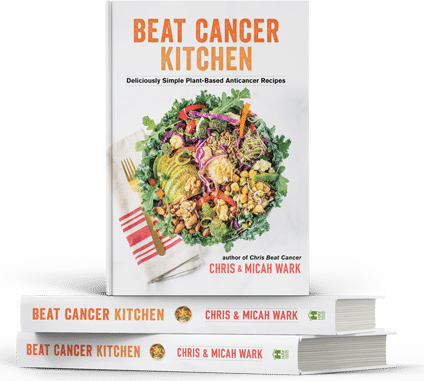
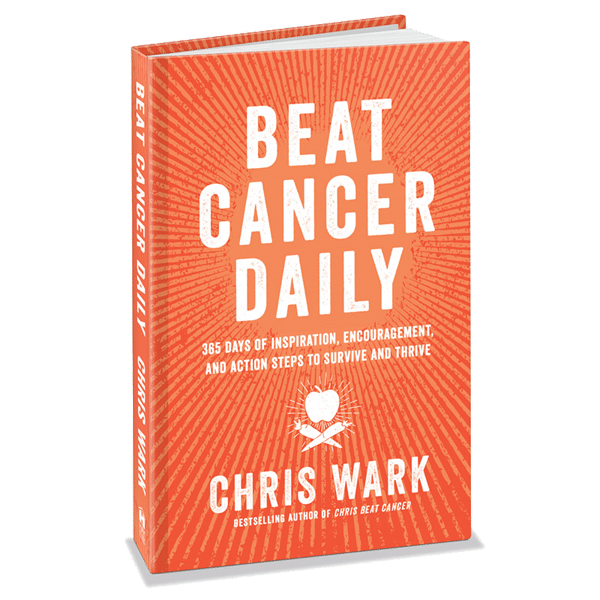
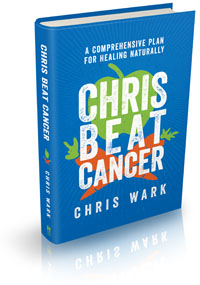 Chris Beat Cancer: A Comprehensive Plan for Healing Naturally Get it on Amazon here, or anywhere books are sold.
Chris Beat Cancer: A Comprehensive Plan for Healing Naturally Get it on Amazon here, or anywhere books are sold. I've interviewed over 70 people who've healed all types and stages of cancer. Check them out here. Or use the search bar to find survivors of specific cancer types.
I also created a coaching program for cancer patients, caregivers, and anyone who is serious about prevention called SQUARE ONE. It contains the step-by-step strategies used by myself and many others who have healed cancer with a holistic approach using nutrition and natural non-toxic therapies.
Watch SQUARE ONE Module 1 for free here
(((c)))
Chris Beat Cancer is ad-free and reader-supported. If you purchase a product through a link on this site I may receive compensation from an affiliate partner (like Amazon). Your support helps fund this blog and my mission so my team and I can continue to do the work that we do. Thank you!

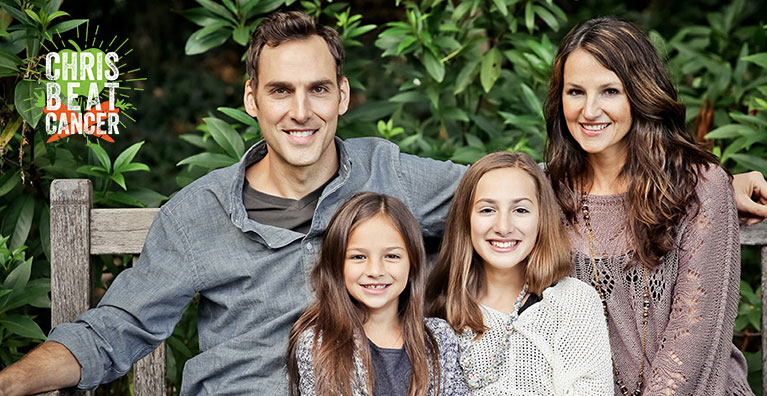





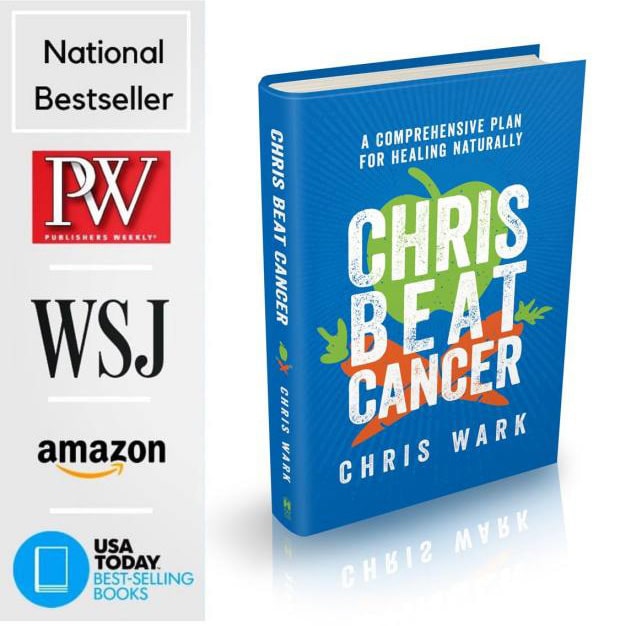
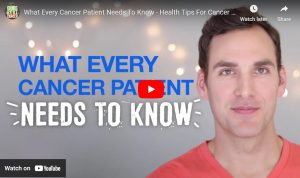

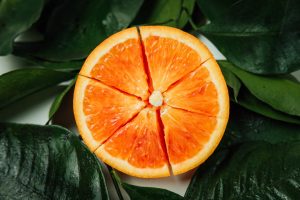

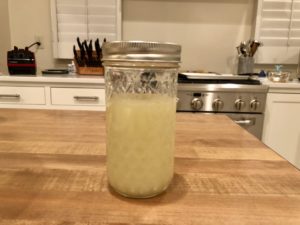

This Post Has 15 Comments
Thank you Chris! Keep doing what you are doing — you are terrific! Struggled with this myself — with crazy suggestions that are difficult to follow. What are your thoughts on eat for your blood type?
Thank you Chris, only the blood of Jesus makes me pure.
Food is food and I appreciate this post!
Thank you
This was a great post. I shared the video with my mom who has multiple myeloma and is doing the Budwig protocol. Sometimes we get a little concerned about slipping in some foods that aren’t necessarily allowed like a bagel with cream cheese or mashed potatoes. Maybe once in a blue moon she even will have a small ice cream cone. To carry around guilt, shame and fear for having an occasional treat is likely more detrimental to one’s body than the actual treat, though! So this helped put things into perspective for us. My mom has her next blood tests soon, so she will see how things are going by having a rare treat once in awhile. Her last ones were great, so we are hopeful that she’s found a healthy balance :)
Hi Sarah, I too have been diagnosed with multiple myeloma and have combined Budwig protocol along with chemo. I was diagnosed at stage III IgA progressing very aggressively. I would be interested in finding out more about your mother’s diagnosis and how she’s managing the disease with the Budwig protocol.
Hi Sarah,
I was curious to how long your mom has had multiple myeloma. What kind of treatment is she going through? Angie
I’m so glad you suggested those books! I want to be healthy and struggle with balance – post menopausal food urges that I never struggled with prior. Can you speak to how stress is reflected in your general health?
Great article Chris. I have done 60 days no meat, no fish. At about 45 days I added back eggs. I am at the point I need to add back the animal protein. In 2 months doing a mostly raw, vegan diet, I lost 16 pounts. Now that is the standard 2 pounds per week so it wasn’t massive weight loss but with my frame I seriously cannot stand to lose anymore weight. Your insight has given me “permission” to do this. I had a fear that if I ate meat I was inviting cancer back into my body and I would inevitably get sick. Thank you Chris for your ministry.
Awesome post…balanced, fair and well thought. You’re a rock star, my friend.
I just watched the two videos – you’re righ extremism isn’t good wherever it is. I agree that Kulvinskas doesn’t even resemble a healthy person. There are so many health voices out there I’m grateful I know a balanced person like yourself. Do you find that it has some drawbacks socially? Are people intimated by you and don’t want to eat with you, share a meal with you or have you over for dinner. Do feel ‘grilled’ – pardon the pun – by people that your conversation has to always be about food and health? Just curious.
Great question! Being a raw vegan definitely has some drawbacks socially. Eating together is how we as humans socialize and when your diet is restrictive that makes it difficult. Even though I was only raw vegan for 90 days, the first year of my anti-cancer diet I did not eat out at all. If I was going to a social eating situation I would eat before I went.
I certainly hope no one is intimidated by me to the point that they wouldn’t have me over for dinner… no one has ever said anything to indicate that, but I guess it is a possibility. The last thing I want is for anyone to feel uncomfortable around me, or like I’m judging them. Because I’m not. My basic attitude is: I don’t care what you eat, I care what I eat.
People do often ask me about health related stuff, but I like talking about it. I like sharing what I’ve learned, it makes me feel good.
As I said in the post, I follow the 80/20 rule. I eat super healthy at home which gives me the freedom to eat less than ideal food occasionally and not worry about it. One of my main standards is that I only eat meat if I know where it comes from. So I’m vegetarian when I eat out. Most restaurants have salads and cooked vegetable sides on the menu, so that’s easy. In most cases, I can usually find something to eat. Cookouts and potlucks can be problematic… Sometimes I find myself thinking, “Ok what’s the least bad thing here”, and I go with that. A recent example: they served salads and pizza at our life group last week and we ate it. Fortunately they were considerate enough to get one veggie pizza, so I had a few slices of that with my salad. No big deal.
Chris,
Excellent article! Balance is very important. Angie
Thanks for the message! How do u show your kids/family this balance with food when church functions and school functions…. Well, any social function has loads of desserts… All the time?
I would love a few suggestions, so I don’t do more harm by telling my kids everything here is unhealthy! Lol.
Great advice– moderation is definitely key. I’ve always been a big fan of Jordan Rubin, and “The Maker’s Diet” will be my diet (and my family’s) for life once I have rid myself of MS. God bless! (o:
God continues to bless me with some great information on healthy eating. I will purchase those books because I am trying to come up with a balance in my lifestyle. I like the 80/20 Rule because I am only recovering from surgery for bc. I don’t even like mentioning the words. I had the surgery in April and I am still in recovery mode. I have to get blood work again in September and I guess that will determine how raw I need to be. I have been doing ok, however, I pray that it is all worth the sacrifice being made on no longer being able to eat a lot of my favorite foods.
Content for Now!
God bless each of you!
HI Dianne,
I had breast cancer almost 14 years ago. Stage 2. I had a lumpectomy with no radiation or chemo, which my Dr. wanted me to have. I followed the 80/20 diet strictly for 1 1/2 years. Then I added organic chicken and wild salmon to my diet. After that, I went back to my regular diet, but eating healthier than I did prior to cancer. Now I eat meat occasionally. I have been cancer free for 14 years! Praise God!
Comments are closed.